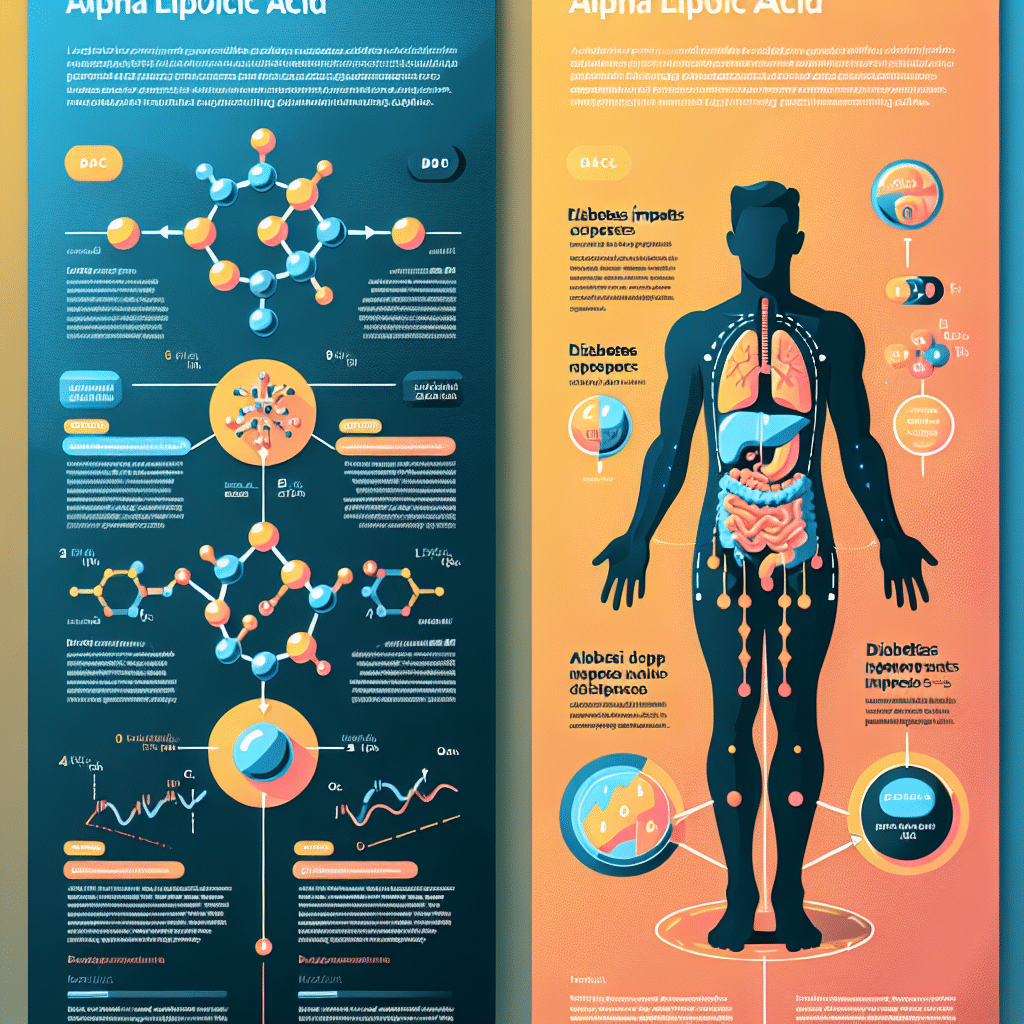Alpha Lipoic Acid Diabetes Benefits Explained
-
Table of Contents
- Alpha Lipoic Acid: Unveiling Its Diabetes Benefits
- Understanding Alpha Lipoic Acid
- Alpha Lipoic Acid and Glucose Metabolism
- Antioxidant Properties and Diabetic Complications
- Scientific Evidence and Clinical Trials
- Dosage and Administration
- Precautions and Interactions
- Conclusion: Alpha Lipoic Acid as a Complementary Treatment
- Discover ETChem’s Protein Products
Alpha Lipoic Acid: Unveiling Its Diabetes Benefits

Diabetes is a chronic condition affecting millions of people worldwide, characterized by high blood sugar levels due to the body’s inability to produce or effectively use insulin. As the search for effective treatments continues, one compound has garnered significant attention for its potential benefits: alpha lipoic acid (ALA). This powerful antioxidant has been studied for its role in improving insulin sensitivity and offering protection against diabetic complications. In this article, we will delve into the science behind alpha lipoic acid and its promising benefits for individuals with diabetes.
Understanding Alpha Lipoic Acid
Alpha lipoic acid is a naturally occurring compound that’s synthesized in small amounts by the body and can also be found in various foods such as spinach, broccoli, and red meat. It plays a crucial role in mitochondrial energy metabolism and acts as an antioxidant, neutralizing harmful free radicals that can lead to oxidative stress—a key factor in the development of chronic diseases, including diabetes.
Alpha Lipoic Acid and Glucose Metabolism
One of the primary benefits of alpha lipoic acid for diabetes management is its impact on glucose metabolism. ALA has been shown to enhance insulin sensitivity, which is critical for controlling blood sugar levels. By improving the body’s response to insulin, ALA helps facilitate the uptake of glucose into cells, thereby reducing blood sugar levels.
- Insulin Sensitivity: Studies have demonstrated that ALA supplementation can lead to significant improvements in insulin sensitivity, which is beneficial for both type 1 and type 2 diabetes.
- Glucose Uptake: ALA stimulates the activity of glucose transporters in cell membranes, promoting the efficient uptake of glucose from the bloodstream into cells.
Antioxidant Properties and Diabetic Complications
Diabetes is often accompanied by increased oxidative stress, which can lead to various complications such as neuropathy, nephropathy, and retinopathy. Alpha lipoic acid’s antioxidant properties make it a valuable ally in combating these complications.
- Neuropathy: ALA has been extensively studied for its effectiveness in treating diabetic neuropathy. It helps reduce symptoms such as pain, burning, and numbness in the limbs by protecting nerve cells from oxidative damage.
- Nephropathy: Kidney damage is a serious concern for diabetic patients. ALA’s antioxidant effects may help protect the kidneys by reducing inflammation and slowing the progression of diabetic nephropathy.
- Retinopathy: Diabetic retinopathy is a leading cause of blindness. ALA may help prevent or delay the onset of retinopathy by safeguarding retinal cells from oxidative stress.
Scientific Evidence and Clinical Trials
Several clinical trials have investigated the effects of alpha lipoic acid on diabetes and its complications. For instance, the ALADIN (Alpha-Lipoic Acid in Diabetic Neuropathy) studies have provided valuable insights into ALA’s therapeutic potential for diabetic neuropathy. Additionally, research has shown that ALA supplementation can improve endothelial function in patients with type 2 diabetes, suggesting a protective effect against cardiovascular complications.
Dosage and Administration
When considering alpha lipoic acid supplementation, it’s essential to discuss the appropriate dosage with a healthcare provider. The typical therapeutic dose for diabetic neuropathy ranges from 600 to 1800 mg per day. ALA supplements are available in oral forms, such as capsules and tablets, as well as intravenous formulations for more severe cases.
Precautions and Interactions
While alpha lipoic acid is generally considered safe, it’s important to be aware of potential side effects and interactions with other medications. Some individuals may experience mild symptoms such as nausea or rash. ALA can also lower blood sugar levels, so it’s crucial for those on antidiabetic medications to monitor their blood sugar closely to avoid hypoglycemia.
Conclusion: Alpha Lipoic Acid as a Complementary Treatment
Alpha lipoic acid offers promising benefits for individuals with diabetes, particularly in enhancing insulin sensitivity and protecting against oxidative stress-related complications. While not a standalone treatment, ALA can be a valuable addition to a comprehensive diabetes management plan that includes a healthy diet, regular exercise, and medication as prescribed by a healthcare professional. As with any supplement, it’s essential to consult with a healthcare provider before starting ALA to ensure it’s appropriate for your individual health needs.
Discover ETChem’s Protein Products
In addition to exploring supplements like alpha lipoic acid, individuals with diabetes may benefit from incorporating high-quality protein products into their diet. ETChem offers a range of premium collagen products that can support overall health and wellness. Their extensive selection includes marine, fish, bovine, and chicken collagen, catering to various dietary preferences and needs. For those looking to enhance their nutritional intake with protein-rich supplements, ETChem’s offerings are worth considering.
About ETChem:
ETChem, a reputable Chinese Collagen factory manufacturer and supplier, is renowned for producing, stocking, exporting, and delivering the highest quality collagens. They include marine collagen, fish collagen, bovine collagen, chicken collagen, type I collagen, type II collagen and type III collagen etc. Their offerings, characterized by a neutral taste, instant solubility attributes, cater to a diverse range of industries. They serve nutraceutical, pharmaceutical, cosmeceutical, veterinary, as well as food and beverage finished product distributors, traders, and manufacturers across Europe, USA, Canada, Australia, Thailand, Japan, Korea, Brazil, and Chile, among others.
ETChem specialization includes exporting and delivering tailor-made collagen powder and finished collagen nutritional supplements. Their extensive product range covers sectors like Food and Beverage, Sports Nutrition, Weight Management, Dietary Supplements, Health and Wellness Products, ensuring comprehensive solutions to meet all your protein needs.
As a trusted company by leading global food and beverage brands and Fortune 500 companies, ETChem reinforces China’s reputation in the global arena. For more information or to sample their products, please contact them and email karen(at)et-chem.com today.




